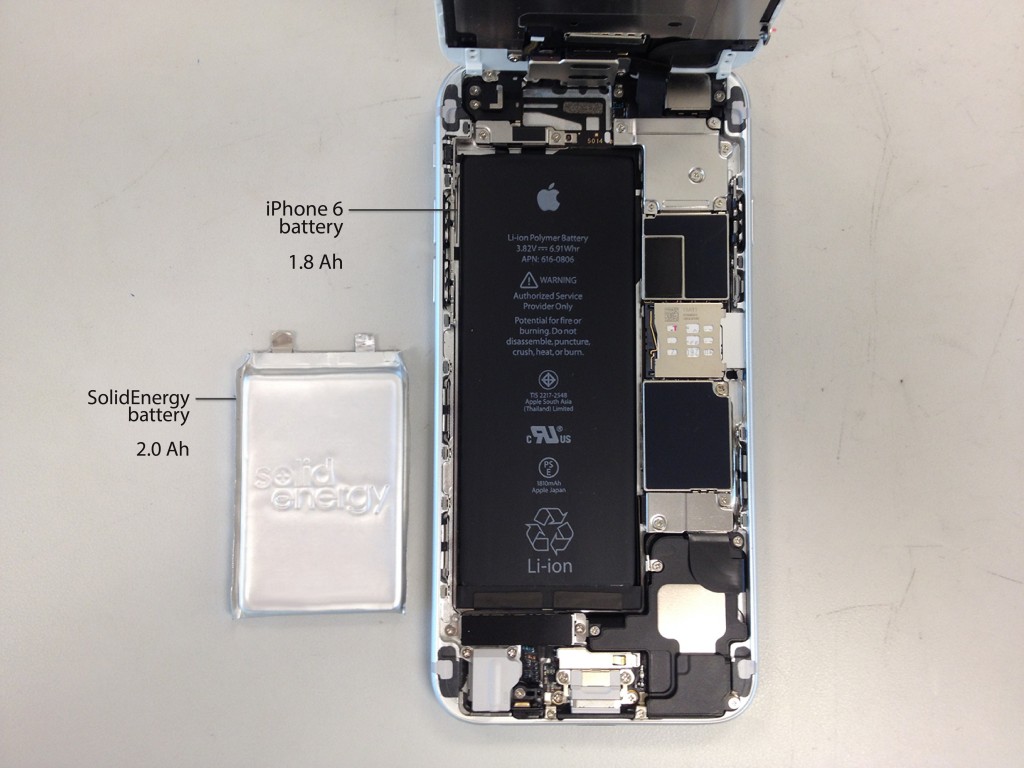A new type of battery technology called lithium-metal will begin to be integrated early next year, helping to extend the life and double the performance of smartphones.
New battery technology with the same size as lithium-ion batteries will help double the life of smartphones and electric vehicles. Accordingly, it will help the battery have twice the capacity of ions compared to lithium-ion, so the capacity and lifespan of smartphones will be significantly increased, according to MIT News.
SolidEnergy Systems company of MIT Institute of Technology (USA) is planning to introduce high-tech lithium batteries for phones in early 2017, for electric vehicles in 2018 and this November, they are ready to integrate it. for drone devices.

“Lithium-metal technology allows us to produce batteries that are half the size of today’s while still maintaining or even increasing the usage time,” said SolidEnergy CEO, who is also the co-inventor of the battery. new Qichao Hu told MIT News.
SolidEnergy said they use extremely thin metal lithium batteries, only about one-fifth the size of normal ones and many times larger than graphite, carbon or silicon. They also developed a hybrid electric method that does not require heating to operate.
“The end result is a high-performance battery with the safety and longevity of a lithium ion battery,” Mr. Hu said.
Currently, SolidEnergy is taking the final steps to complete copyright confirmation procedures. If successful, this technology will be developed on many other mechanical devices.
In recent years, although phone manufacturers have continuously competed to introduce many attractive features, battery technology has remained unchanged. This new solution from SolidEnergy is the key to solving that hammer problem, and is extremely good news for users.
According to Vietnamnet.


